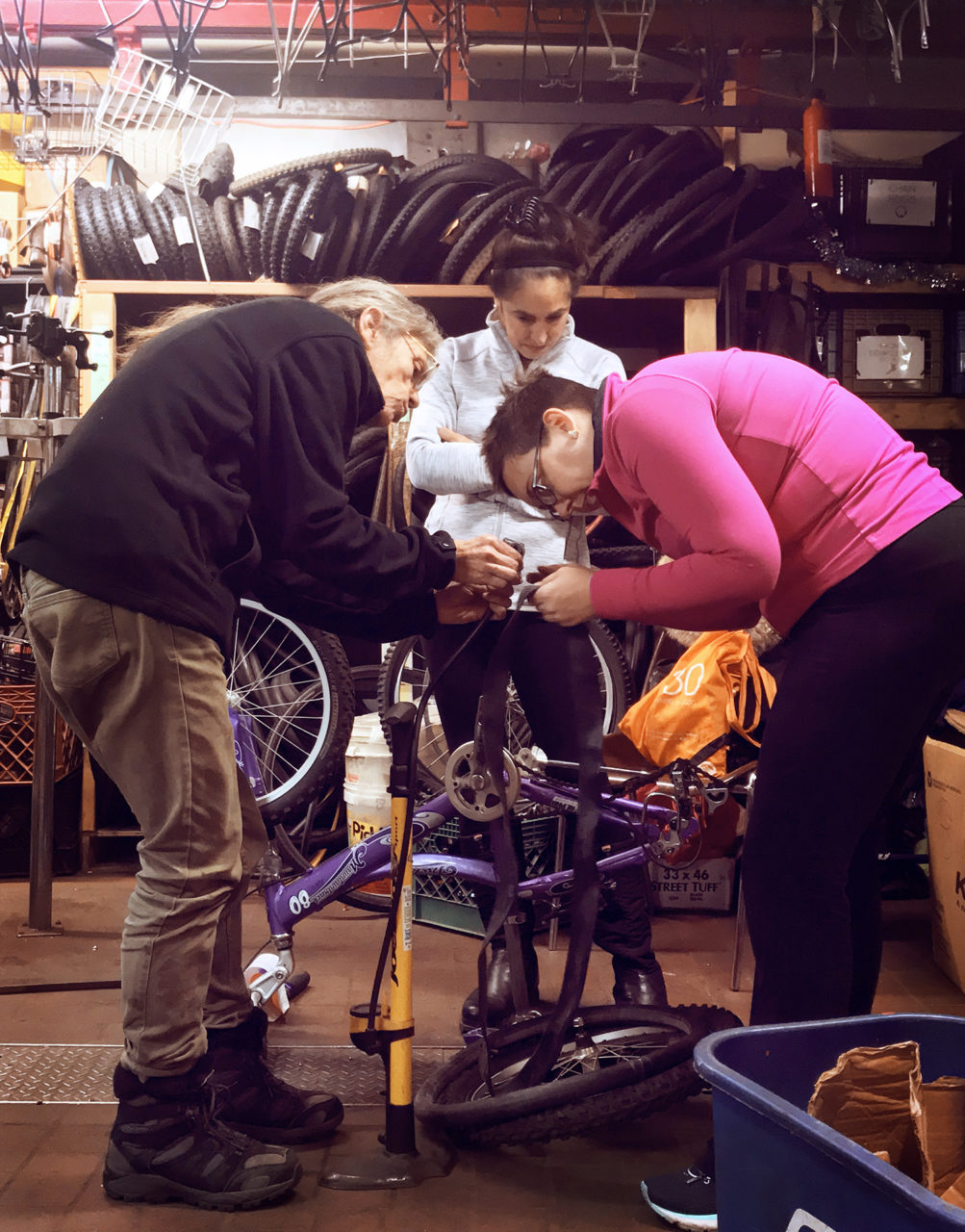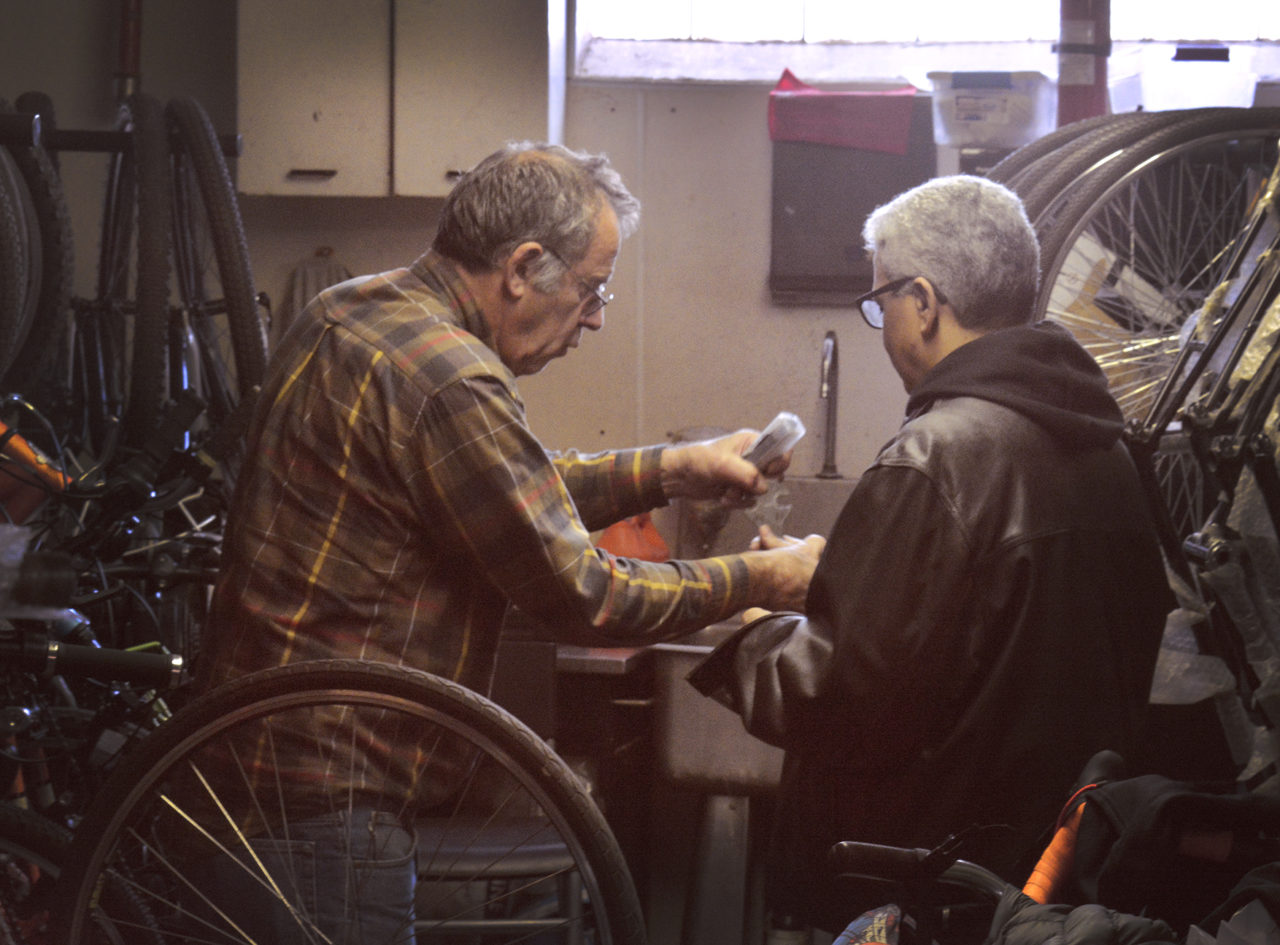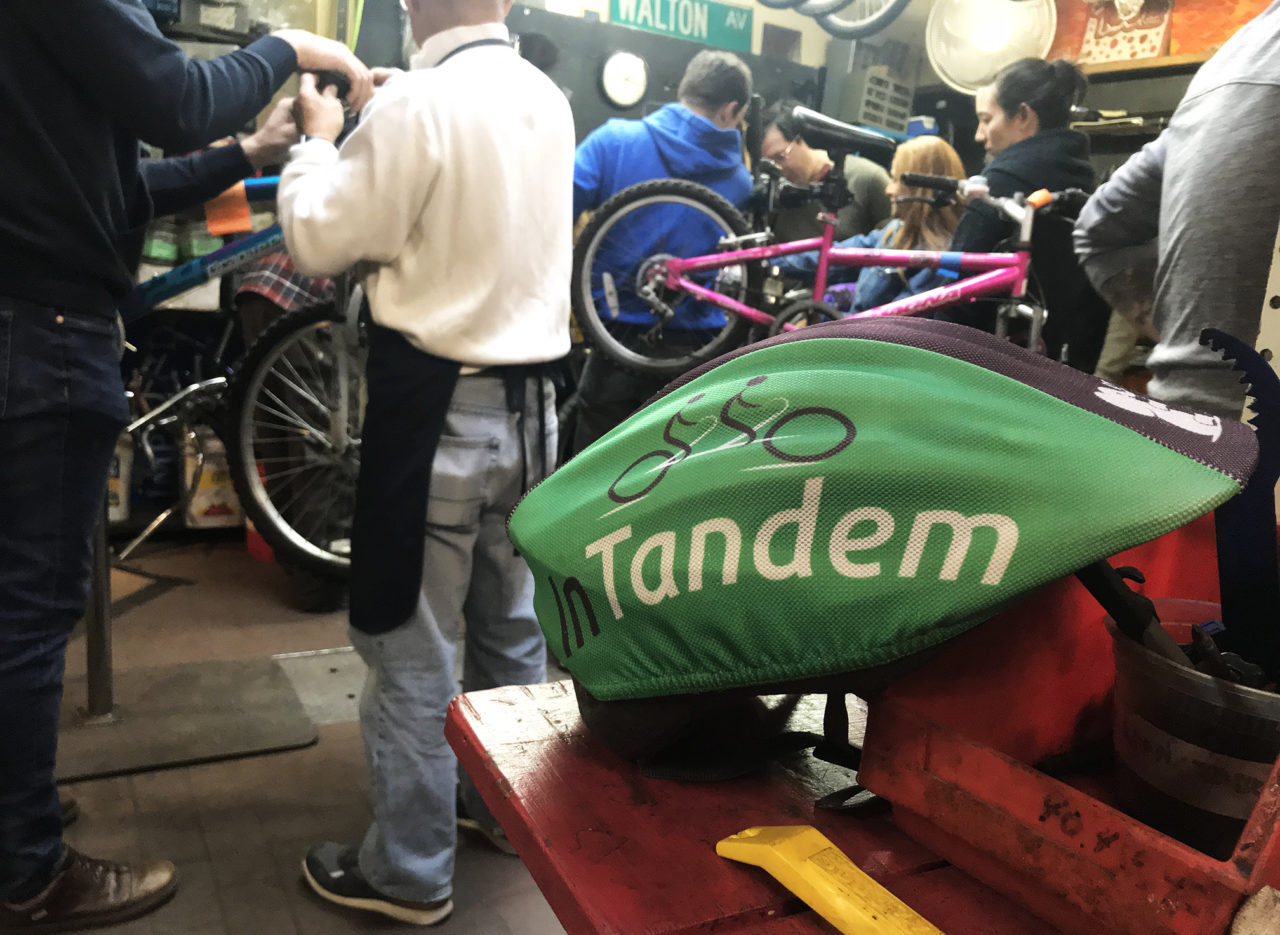January 9, 2019
Bridging the Accessibility Gap: Adaptive Bike Education with InTandem and Recycle-A-Bicycle

IMAGE DESCRIPTION: Two men and three women stand around the rear wheel of a bicycle, inspecting the gear system. One man and one woman are wearing nitrile gloves. The group is surrounded by a variety of tools hung on the wall.
From the whoosh of the wind while coasting on a descent to the unmistakable sound of a grinding gear, cyclists tend to be tuned in to the music of the road. But for riders with low vision or blindness, what they hear isn’t just background noise – it’s a critical source of information about the conditions of their environment and the state of their bike.
Last month, visitors to Recycle-A-Bicycle’s Long Island City workshop were given the opportunity to appreciate just how big of a role the interaction of the senses play in a comprehensive understanding of bike maintenance. The shop hosted a special session of Bike New York’s Fix-A-Flat class tailored just for members of InTandem, a 501c3 not-for-profit whose mission is to provide tandem cycling programs to people who are blind, have low vision, or cannot ride independently due to other disabilities. The organization provides training and support for paired teams of captains (front wheel) and stokers (back wheel), aiming to create a more inclusive cycling community by bringing riders together from across the accessibility spectrum.

IMAGE DESCRIPTION: Two women use a bike pump to inflate a tube while a third woman looks on. Between them, a bicycle is flipped upside down, and above is a shelf filled with bike tires.
InTandem’s Adaptive Fix-A-Flat class sought to outfit captains and stokers with a skill that would benefit any cyclist: the ability to diagnose and solve common mechanical problems on the road, regardless of the status of their vision. After mingling and a quick round of introductions, participants broke into small groups and met with their instructors. Several students opted for one-on-one instruction, allowing them to pursue the structure and pace that best suited their learning style. Questions arose in a free-flowing, conversational manner, and answers were most often reached by a guided process of trial and error.
As the shop buzzed with activity and the class ran through the basics of patching and replacing a tube, the idea of bike maintenance as a deeply sensory experience came into sharp focus: participants identified the sites of leaks by listening closely for the hiss of escaping air, felt the tactile differences between smooth stretches of tubes and areas primed for patches with sandpaper, and became better acquainted with necessary tools through their unique shapes and interactions with grip.

IMAGE DESCRIPTION: Two men stand facing each other, with one speaking while the other listens. The man who is listening holds a wrench, while the man who is speaking helps to guide the other man’s hands along the wrench. They are surrounded by bike tires and parts.
This Adaptive Fix-A-Flat session was the latest effort to expand Recycle-A-Bicycle’s accessible programming, which has included shop sessions for students on the autism spectrum and with special needs groups serving adults and children. Prior to InTandem’s Adaptive class, a sensitivity training course was offered to Recycle-A-Bicycle instructors and Bike New York staff, led by Walei Sabry from the Mayor’s Office for People with Disabilities and Jonathon Epstein, InTandem’s Director of Operations. While running through a group Fix-A-Flat demo, instructors gained insight into how simple changes in approach –for instance, giving extra consideration to verbal descriptions of not only the steps of a repair, but also the parts and tools themselves – can help to create a more accessible learning environment. Along the way, Sabry and Epstein discussed disability culture and the issues defining the contemporary disability rights movement.
InTandem’s Adaptive Fix-A-Flat lesson wrapped up with participants regrouping for chats and snacks in recognition of a job well done, trading techniques, tips, and cycling experiences. “It was great for group bonding and camaraderie,” remarked Susan, an InTandem captain and first-time Fix-A-Flat student. “I think people felt a great sense of accomplishment for having learned and completed their tasks.”
Little can bring folks closer than facing and overcoming challenges together. After miles spent riding in sync, InTandem’s captains and stokers now have the chance to sync up their mechanic skills, too.

IMAGE DESCRIPTION: A bike helmet with a green InTandem helmet cover rests on a bike shop table in the foreground, and a group of people are handling bikes and tools in the background.
Learn more about InTandem by clicking here. Special thanks to Jordan Stein (of both InTandem and Recycle-A-Bicycle!) for his help in organizing this class session.To get involved with Recycle-A-Bicycle’s accessibility-focused programs, reach out to Karen Overton at koverton@bike.nyc.













